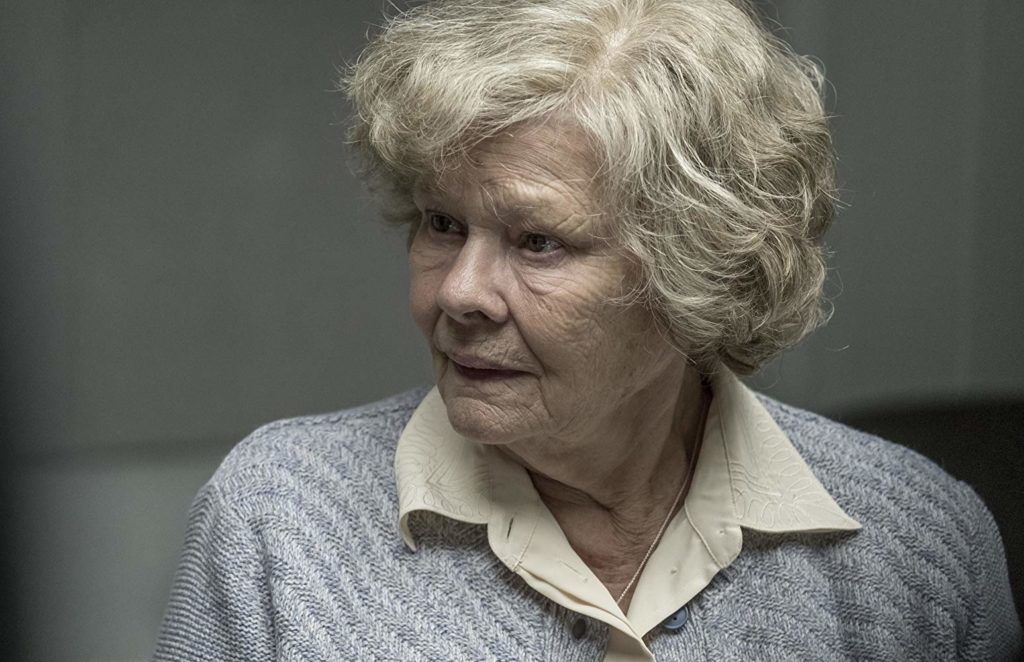The ever-present figure of James Bond is a testimony to the lasting popularity of spy dramas among British audiences. Red Joan, an adaptation of the factually-based novel by Jennie Rooney and starring Judi Dench, is the latest film to make the most of this market. Sadly, Trevor Nunn’s biopic is less a tale of pioneering female minds and treasonous actions than it is about some pathetically roped together love stories.
A retired librarian, Joan (Judi Dench) is arrested under suspicion of breaking the Official Secrets Act during the 1940s, passing on information to the Soviet Union that allowed them to construct their own atomic bomb. The film then flips between her interrogation and her life in the 30s and 40s. In this time, a young Joan (Sophie Cookson) becomes involved with a socialist movement at Cambridge University, and ends up passing on secrets while working on Britain’s nuclear programme.

Except the film is almost never about that. Lindsay Shapero’s screenplay makes the fatal error of focusing on Joan’s uninteresting and frustratingly inconsistent romantic relationships. First, it is with the Stalin-loving Leo (Tom Hughes), and then with her scientist colleague Max Davis (Stephen Campbell Moore), then back to Leo, then back to Max. It’s never always clear what her relationships with them are, and this painfully detracts from what should be an interesting story.
We get brief glimpses of Joan’s moral dilemma when it comes to working on the atomic bomb, but her motivations are hidden from us until the end. When they are made clear, it is thought-provoking but lazily lumped on at the end of the action. The significance of a young woman completing a science degree at Cambridge and working on a top secret British military project goes almost unrecognised. Her love life is supposedly far more interesting. The entire story is horrifically misguided, getting its priorities all wrong and following through on its choices in a banal way.
This leads into Red Joan’s most fatal flaw: it just isn’t a good spy movie. Not even remotely. You never feel on your toes, and the espionage is too often the secondary focus. Nunn’s film is too bogged down in melodrama to pick itself up and deliver some intensity. Instead, Joan’s affections and relationships make her out to be a much weaker character than she really is. Not only that, but the film never firmly decides whether they want Joan to be seen as a traitor or an admirable pacifist. Such indecision plagues the entire film and you never forgive it for doing so.

None of the performers put a foot wrong, but are given very little to work with. Most of the characters, including Joan herself, offer nothing of interest. Dench is iconic as always, but can pull off these kinds of beleaguered old woman roles with her eyes closed (which here she actually does, half the time). Cookson is also impressive as a young Joan, but with both you feel a step ahead of the characters. You know what they are going to do before they do, given the dreary predictability of the script that is happy to tick boxes rather than innovate and inspire. Red Joan takes an intriguing premise and dilutes it almost beyond recognition into a boring and poorly done romance. Unlike good spy movies, Nunn’s dreary history lesson leaves you neither shaken nor stirred.
Red Joan is out in cinemas now, distributed by Lionsgate.
